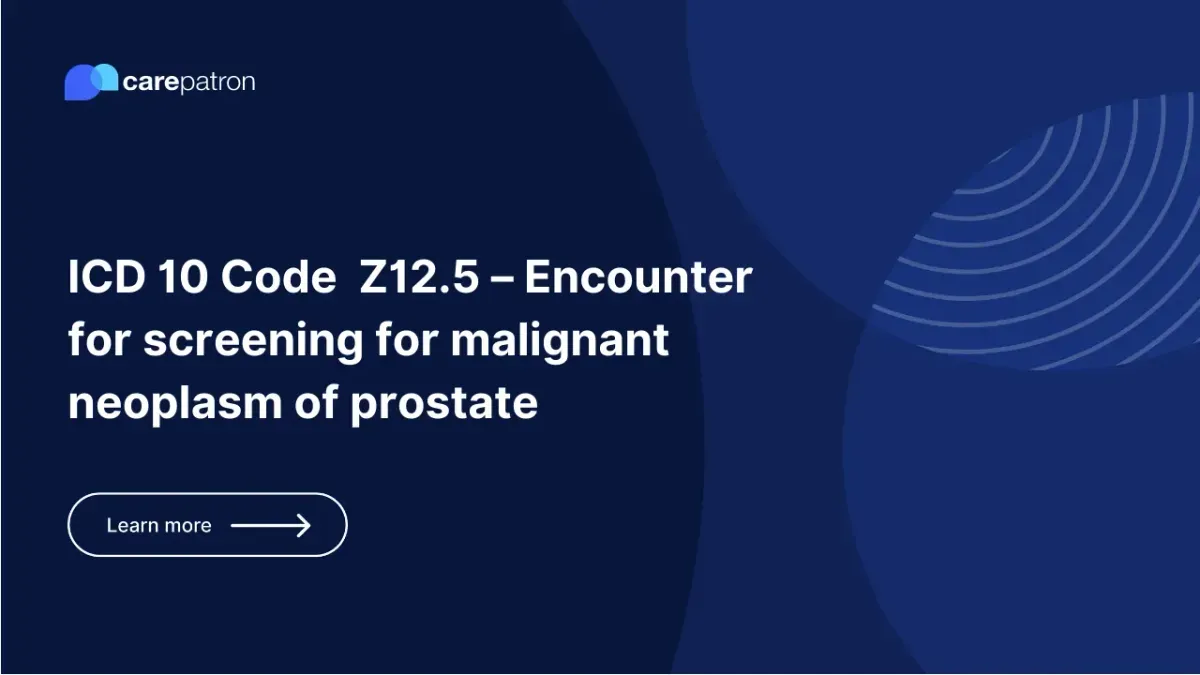
Z12.5 – Encounter for screening for malignant neoplasm of prostate
Discover Z12.5: Prostate cancer screening encounter code. Early detection saves lives. Understand its clinical description, billable status, and FAQs.
Use Code
Commonly asked questions
he American Cancer Society recommends discussing prostate cancer screening with patients starting at age 50 for most men. However, for individuals with a higher risk, such as those with a family history or African-American ethnicity, screening discussions may begin at age 45 or earlier.
Prostate cancer screening may lead to early detection and timely treatment, potentially improving outcomes. However, it can also result in false positives, leading to unnecessary tests or procedures. Patients should discuss the risks and benefits with their healthcare providers to make informed decisions.
No, the Z12.5 code is specifically for encounter screening purposes and should not be used for patients with confirmed prostate cancer diagnoses. Separate codes exist to capture the appropriate encounters for evaluating, managing, and treating confirmed diseases.
EHR and practice management software
Get started for free
*No credit card required
Free
$0/usd
Unlimited clients
Telehealth
1GB of storage
Client portal text
Automated billing and online payments
